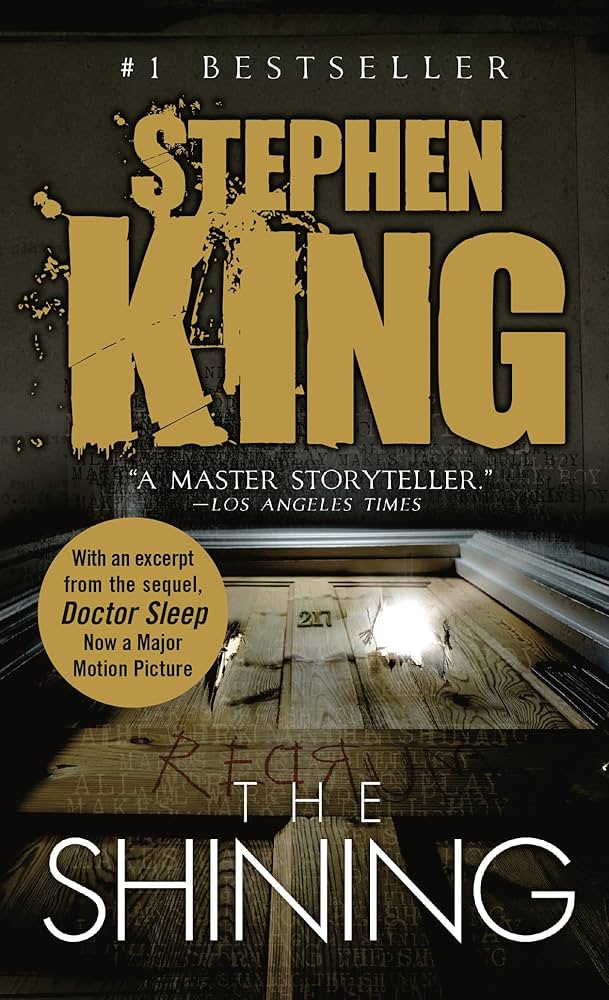Stephen King is one of the best-known and most prolific authors in the horror genre. However, his works extend beyond horror to include elements of fantasy, science fiction, and thriller. King’s rise to fame began with his debut novel Carrie in 1974. The novel marked the beginning of an illustrious career spanning decades. His ability to weave terrifying tales that remain grounded in human experiences has earned him a massive fanbase.
A Glimpse into Stephen King’s Life and Career

Early Life and Influences
Stephen King, born on September 21, 1947, in Portland, Maine, grew up in a modest household. He was primarily raised by his mother after his father left the family. King’s childhood fascination with horror was sparked by early readings of EC horror comics and authors like H.P. Lovecraft and Richard Matheson. Maine’s small-town settings, wooded landscapes, and eerie weather patterns often inspired his later stories, adding a distinctly personal touch to his books.
First Steps into Writing
King’s journey into writing began early, with him crafting his first stories as a young child. By college, he wrote for his campus newspaper, honing his style and experimenting with various genres. Stephen King struggled financially before achieving mainstream success, balancing jobs and writing short stories that he sold to magazines. It wasn’t until his breakthrough with Carrie that he could fully dedicate himself to his craft.
Breakthrough Success with Carrie
Published in 1974, Carrie changed the course of Stephen King’s life and established him as a master of horror. The novel’s story of a bullied high school girl who discovers telekinetic powers touched on themes of alienation, cruelty, and revenge. Inspired by his observations of high school culture, Carrie became an instant bestseller, leading to a successful movie adaptation in 1976 that cemented King’s reputation.
Key Milestones in King’s Writing Career
Following Carrie, Stephen King published Salem’s Lot, The Shining, and The Stand, solidifying his reputation as a powerhouse of horror. Each book introduced readers to a new, unsettling take on fear and suspense, covering everything from haunted hotels to apocalyptic plagues. His prolific output, including short stories and essays, soon made him a household name, and he continued to evolve his style, venturing into fantasy, crime, and psychological thrillers. By the 1990s, King was not just a writer but an icon of modern horror and suspense literature.
Stephen King’s Unique Writing Style
Key Characteristics of King’s Writing
King’s writing style stands out for its combination of supernatural horror and deeply relatable characters. He often builds suspense by creating ordinary settings—like a hotel or small town—that slowly reveal a sinister undercurrent. His narratives tend to be immersive, pulling readers into the lives of his characters with relatable traits and flaws that make them all the more engaging.
Use of Horror and Suspense
Stephen King is celebrated for his mastery of horror and suspense, blending supernatural elements with the fears of the everyday. By tapping into universal anxieties, such as isolation, mortality, and loss, King makes the horror genre approachable and thrilling. Inspired by classic Gothic horror and psychological horror, King’s work pushes the boundaries of suspense, keeping readers hooked with the fear of what lurks just out of sight.
Real-Life Inspirations Behind His Stories
Much of Stephen King’s work reflects his personal experiences and observations, with Maine frequently featured as the setting for his novels. King’s incorporation of real locations and communities gives his work a grounded feel, making even the most terrifying scenarios seem possible.
Mastery of Dialogue and Character Development
King’s skillful use of dialogue brings his characters to life, making their emotions, personalities, and relationships feel authentic. He portrays both heroes and villains with depth, allowing readers to connect with characters even as they spiral into danger or madness. King’s complex characters, often grappling with personal struggles, help readers find empathy and depth in his supernatural tales.
Experimentation with Different Genres
Although best known for horror, King has successfully explored other genres, including fantasy with The Dark Tower series and crime with the Mr. Mercedes trilogy. His ability to adapt his voice to different genres demonstrates his versatility, allowing him to appeal to a wide audience and sustain a career spanning nearly five decades.
Analysis of Three Defining Books
The Shining – The Haunted Hotel and Psychological Horror

One of King’s most iconic works, The Shining (1977), explores the psychological unraveling of Jack Torrance, a writer struggling with alcoholism, as he becomes the caretaker of the eerie Overlook Hotel. Themes of isolation and madness pervade the novel, blending supernatural horror with psychological tension.
Psychological Depth and Character Study
Jack Torrance’s descent into madness reflects King’s exploration of the human psyche and its vulnerabilities. His portrayal of Jack’s internal conflict and transformation into a menacing figure adds a layer of tragedy to the horror, offering readers a chilling look at personal demons and their potential to destroy.
Legacy of The Shining
The Shining left a significant mark on horror literature and cinema, with Stanley Kubrick’s adaptation in 1980 becoming a classic in its own right. Despite King’s own criticisms of the adaptation, the film remains iconic, solidifying The Shining as a cultural phenomenon that has inspired countless other works in horror.
It – Childhood Fears and Small-Town Evil

Published in 1986, It follows a group of friends confronting an evil entity haunting their small town. Pennywise, the monstrous clown, is the embodiment of childhood fears and trauma, a manifestation of the darkness lurking beneath the surface of their community.
Themes of Good vs. Evil and Innocence Lost
It explores the loss of innocence and the resilience required to face one’s fears. By juxtaposing childhood bravery against adult vulnerability, King emphasizes that some fears are never fully defeated, only confronted time and again.
Impact on Pop Culture
Pennywise the clown has become an iconic figure in horror, inspiring movies, television adaptations, and even internet memes. It’s cultural impact is vast, cementing King’s reputation as a creator of timeless horror that transcends generations.
Misery – The Terror of Obsession and Isolation

In Misery (1987), King diverges from supernatural horror to explore psychological terror through the story of Paul Sheldon, an author held captive by his obsessive fan, Annie Wilkes. This story delves into the darker side of fame and fandom, revealing the thin line between admiration and control.
Exploration of Fan Culture and Obsession
Misery dissects the extremes of fandom, portraying how admiration can evolve into a dangerous obsession. The character of Annie Wilkes serves as both a fanatical reader and a controlling figure, showing how personal boundaries can become dangerously blurred.
Influence of Misery on Psychological Horror
King’s exploration of captivity, control, and fear in Misery influenced the psychological horror genre, setting the standard for stories of survival and captivity that examine human resilience under intense psychological pressure.
Stephen King’s Legacy in Literature and Beyond
Influence on the Horror Genre
Stephen King revitalized horror literature, transforming it from a niche genre into a respected field of storytelling. His ability to blend horror with literary depth made horror accessible to a wider audience and paved the way for other authors to explore similar themes.
Inspiration for Modern Horror Writers
King has influenced a generation of horror writers, inspiring them to explore horror in a way that reflects real emotions and complex characters. His approach to horror, where fear is grounded in the human experience, remains a guiding influence for contemporary authors.
King’s Contribution to Film and Television
Many of King’s novels have been adapted for film and television, expanding his influence across mediums. Adaptations like The Shawshank Redemption, The Green Mile, and The Shining have reached audiences beyond readers, cementing his stories in the realm of visual storytelling.
Adaptation Challenges and Successes
Adapting King’s work can be challenging due to his intricate storylines and psychological themes. However, successful adaptations often capture the essence of his characters and settings, bringing his unique blend of horror and humanity to the screen.
Awards and Recognition
King has received several awards, including the National Medal of Arts and the Bram Stoker Award. These accolades highlight his lasting contribution to literature and his role in elevating horror writing.
The Continuing Impact of Stephen King’s Work
King’s Appeal Across Generations
King’s exploration of universal themes—love, fear, resilience—has allowed his work to remain relevant to readers of all ages. His novels address timeless struggles and emotions, making his stories resonate across decades.
Influence on Popular Culture and Media
King’s works are widely referenced in pop culture, from Halloween costumes to film adaptations. His themes, characters, and memorable quotes continue to inspire new media, keeping his stories alive in modern culture.
King’s Role as a Mentor and Advocate for Writers
Through his memoir On Writing: A Memoir of the Craft, King has become a mentor for aspiring writers. He has been offering practical advice and encouraging creativity among writers. His emphasis on discipline and authenticity in writing has inspired countless writers to pursue their craft.
Conclusion:
Stephen King’s career has left a profound impact on literature, the horror genre, and popular culture. His storytelling blends supernatural horror with deeply human experiences, making his work both terrifying and thought-provoking. King’s influence extends beyond horror, shaping modern literature and inspiring writers across genres. His legacy is a testament to the power of storytelling, ensuring his place in the literary world for generations to come.
